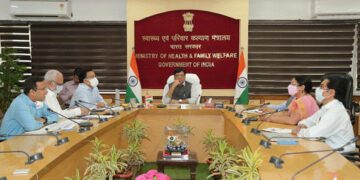Clinical trials for the Russian Sputnik V vaccine will be held in India this month, the chief of the Russian Direct Investment Fund (RDIF) Kirill Dmitriev told a news agency in an interview.
Besides India, clinical trials will also begin this month in Saudi Arabia, UAE, the Philippines and Brazil and the preliminary results of this phase (Phase 3) will be published in October-November, said Kirill Dmitriev.
India crossed the 50-million mark for coronavirus disease (Covid-19) tests on Monday, as 1.09 million tests were conducted in a day until midnight.
The one-million daily test mark was crossed for the first time on August 21 and the figure has been consistent over the past week. At present, the number of Covid-19 tests per million population in the country stands at 37,079.
Asked if there were too few participants in Phase 1-2 trials of Sputnik V, he said most media missed a crucial point. On the surface the Sputnik V trial seemed smaller with that of AstraZeneca. But AstraZeneca initially ran its trial with a one-shot model.
It tested the two-shot model only on 10 people whereas the Sputnik V trial exceeded that number by four times, he reasoned.
The RDIF CEO denied Russia had stolen the vaccine and claimed Gamaleya Center had modified an existing platform developed in 2015 for Ebola fever, which went through all phases of clinical trials and was successfully used in Africa in 2017.
A familiar face in India, Dimitriev said its competitors were working on technologies such as mRNA that are yet to be proven for safety and efficacy. While clinical trials of Sputnik V showed no serious adverse events, the incidence of serious adverse effects for other candidate vaccines ranged from one to 25 per cent.
Meanwhile, the Asia-Europe Meeting (ASEM), of which India is a member, joined hands with the EU and Germany (as regional coordinators of the European group), Singapore (as the regional coordinator of the ASEAN group) and Russia (as the regional coordinator of the Northeast and South Asia group) to issue a joint statement.
It reiterated the need for international cooperation and support in maintaining resilient, open and connected supply chains as well as underlined the need to cooperate in the post Covid phase.










































